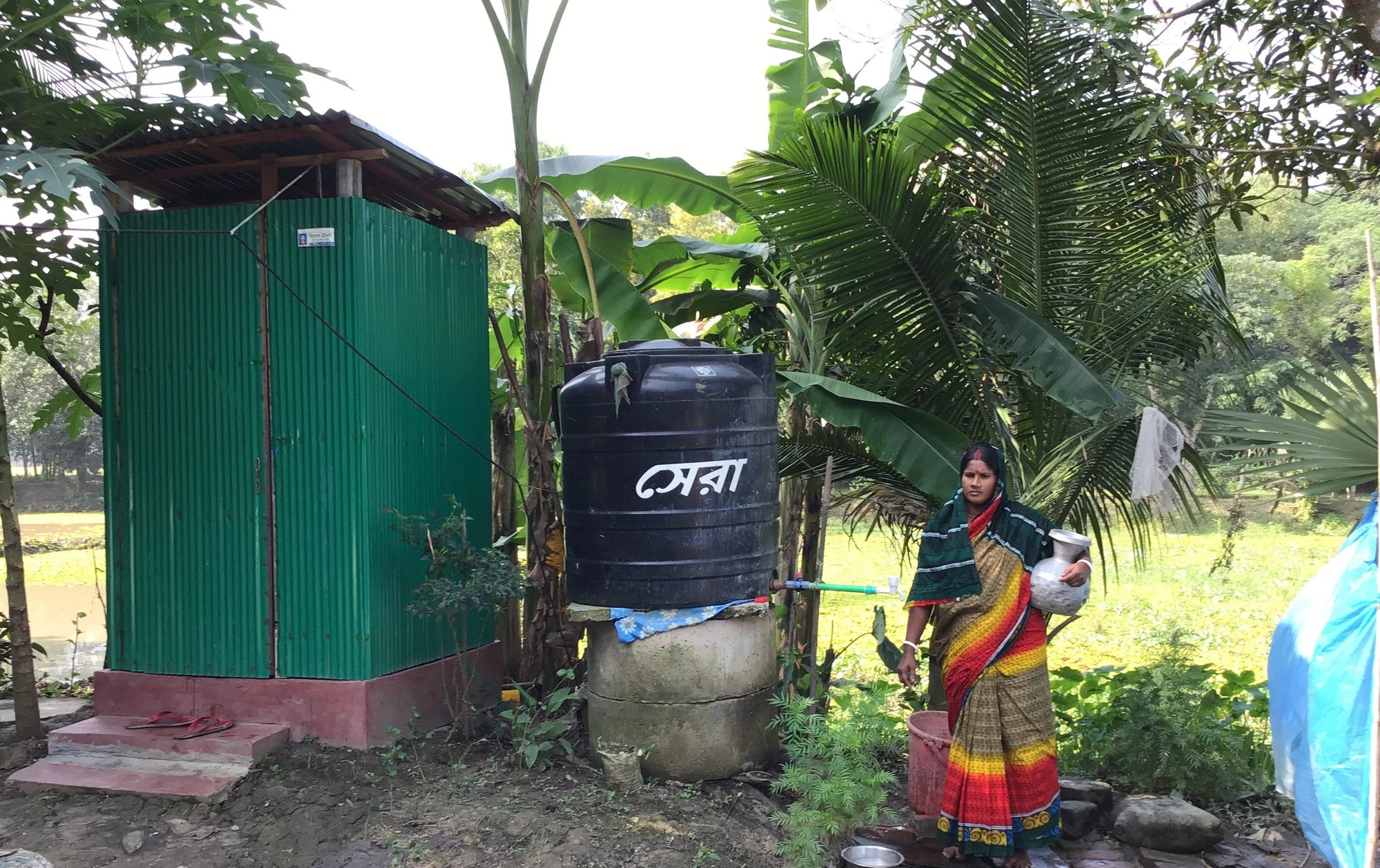
In a tiny hamlet called Shinglab in Gazipur district, around 2 hours from Dhaka, you can see a cluster of homes made of varying materials depending on the household income.
Shamela Hakeem, 40, lives in a functional mud hut with a tin roof. A widow with no children, she makes around BDT 300 ($3.50) daily as a sweeper at a local factory.
Last year, she decided to upgrade her sanitation facilities and purchased a BDT 10,000 ($118) toilet from a local entrepreneur . She is due to pay off her final installment within the next month.
But why did she decide to invest in a toilet?
A three-way street
Bangladesh has nearly eliminated the practice of open defecation, but many latrines are poorly constructed and unhygienic , which can be harmful to the environment and the user.
Only 32 percent of the rural population have access to a safely managed sanitation service. The government is helping rural households shift to better sanitation. However, many poor rural households are often discouraged by the upfront cost.
The country also has a history of micro-finance institutions (MFIs) who have effectively worked with rural households. But MFIs have had little experience in investing in non-productive assets such as toilets.
In 2016, a $3 million World Bank grant helped scale up MFIs lending for improved rural sanitation in Bangladesh. An additional $23.7 million in seed money was mobilized from MFIs for the installation of latrines.
Small-scale sanitation entrepreneurs received technical assistance to build good quality, affordable models of hygienic latrines for low-income households. Finally, an agreement was reached with the Palli Karma-Sahayak Foundation (PKSF) to work with retail MFIs and local entrepreneurs (LEs).
Interest-free loans were extended to households using their own capital ($22) of PKSF and their MFI partners plus business loans to entrepreneurs with market rate interest. Across 42 districts, household borrowers could choose from a range of standard design ‘set price’ latrines installed by LEs . Another arrangement was reached between MFIs, LEs, and customers who accessed the sanitation loan from MFIs and placed an order with LEs to construct the latrine.
Households could pay off the loan over a period of 50 weeks without interest . “We started off with 143 latrines in 2017, but now the market is more developed, and entrepreneurs are motivated,” said Gazi Md. Salahuddin, general manager of Resource Integration Centre, an MFI based in Narayanganj district.

From shop floor to the doorstep
The program also changed market behavior away from the shop floor to the doorstep of the household.
“It effectively shifted the dialogue from the males who go to the market to the females who are primarily in the household. So, the conversation moved from just delivery of the latrine to the health and safety benefits of a latrine,” said Rokeya Ahmed, Program Lead, World Bank.
As a result, over the past two years:
- A total of 1,864 trained entrepreneurs are selling certified latrines with installation and delivery services .
- 259,885 households received loans from MFIs worth $31 million for the installation of latrine models
- 1,944 entrepreneurs received business loans from MFIs and 133 LEs had established a one-stop shop enabling customers greater convenience . The pricing of the different ‘turn-key’ latrine models fostered greater customer satisfaction and value for money.
- The program helped reduce the households’ weekly repayment by 11 percent . The size of the subsidy empowered the women to advocate for sanitation loans within their household, and loans made the latrines an attractive incentive amongst credit group members. Most importantly, it enabled the poor to purchase latrines over 50 installments.
Increasing the loans to include piped water for flushing and washing could be a valuable addition to future projects . It would also lessen the burden of carting water by the women household members.
But for now, even low-income households like Shamela Hakeem’s has the right to access a safe and effective toilet for a healthy lifestyle. As she said, “If a clean toilet helps to prevent illness, I should be able to afford it like anyone else.”


Join the Conversation